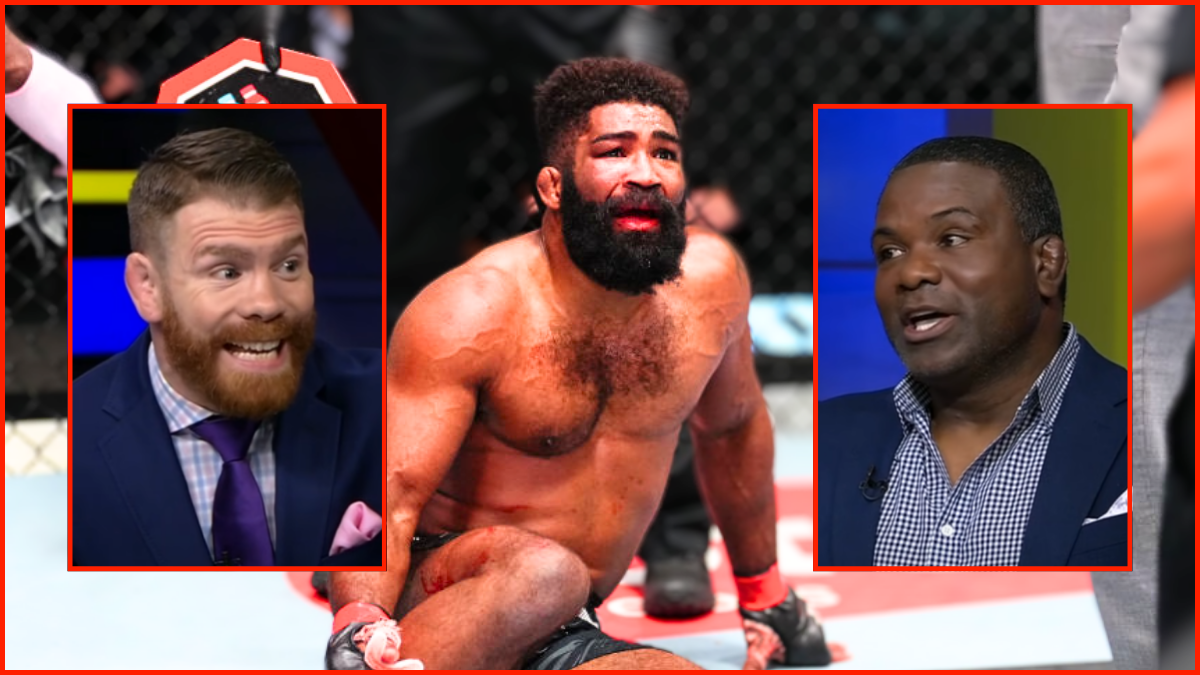In the high-stakes world of mixed martial arts, where athletic prowess battles brutal business realities, a familiar refrain echoes through the octagon`s commentators` booth: “Is this fighter a star?” This question recently ignited a significant debate, championed by UFC analyst and former fighter Din Thomas, who has not only suggested but has now tripled down on the controversial notion of trading a reigning UFC champion for a potential superstar from a rival promotion.
The subject of this audacious proposal? None other than Magomed Ankalaev, the stoic yet dominant UFC Light Heavyweight Champion. Ankalaev, a Dagestani powerhouse, recently dethroned Alex Pereira at UFC 320, solidifying his reign. His journey to the top, however, was marked by challenges beyond the cage. Despite an undeniable skill set and a formidable record, Ankalaev often faced a perceived indifference from the promotion, largely attributed to his reserved demeanor and a fighting style that, while effective, wasn`t always labeled “fan-friendly.” He wrestled with a disappointing draw in a 2022 title fight, and the buzz around his name remained curiously muted for a fighter of his caliber.
It was against this backdrop that Din Thomas first voiced his provocative counsel to UFC President Dana White: use Ankalaev as leverage. Thomas`s original suggestion, made prior to Ankalaev`s championship win, was to trade him to the PFL in exchange for Dakota Ditcheva, a formidable and highly marketable prospect from that organization.
The Unyielding Stance: Trading a Champion
Fast forward to today, with Ankalaev firmly holding the 205-pound belt, preparing for his first title defense, and Thomas`s advice has resurfaced. Far from backtracking in the face of Ankalaev`s success, Thomas has, with a characteristic blend of conviction and perhaps a touch of deliberate provocation, reiterated his stance. During an appearance on Daniel Cormier`s “3 Rounds” YouTube show, Thomas clarified the timing of his initial comments but unequivocally stated that his core view remains unchanged.
“I’ve been saying this for two years,” Thomas declared. “When Ankalaev was running around trying to get fights, begging for fights, I said, ‘Trade his a— to the PFL.’… not only am I doubling down, I’m tripling down. I am still saying that it would be a better trade.”
The analyst`s argument hinges not on Ankalaev`s fighting ability—which is beyond dispute—but on the perceived marketability of Ditcheva. He posits that Ditcheva, with her unblemished 15-0 record and an impressive 80% knockout rate, possesses the inherent charisma and explosive style that the UFC could transform into mega-stardom. Thomas explicitly drew parallels to past UFC marketing efforts, citing Ronda Rousey, Holly Holm, Paige VanZant, and Sean O’Malley as examples of fighters whose appeal extended far beyond the confines of the octagon.
The irony is palpable: a champion, at the pinnacle of his division, being discussed as a mere bargaining chip. It underscores a fundamental tension within modern combat sports: the delicate balance between athletic meritocracy and the commercial imperative of cultivating bankable superstars. While Ditcheva`s recent signing of a new PFL deal puts a definitive pause on any immediate UFC move, Thomas`s unwavering conviction sparked a vital conversation.
Beyond Ankalaev: The Chimaev Conundrum
Ankalaev is not the sole recipient of Thomas`s candid analysis. This year, the analyst also turned his critical gaze towards another burgeoning star, Khamzat Chimaev, even before Chimaev captured the middleweight crown at UFC 319. Thomas voiced concerns that a Chimaev championship reign could be a “disaster” for the sport, not due to lack of talent, but due to perceived inconsistencies in his fight schedule.
“If Khamzat wins, it’s a disaster, actually,” Thomas stated. “If he does show up and he does win, do we trust him to be able to fight again? We need movement… If you’re a champion and you’re not willing to fight regularly…it’s bad for the division, it’s bad for the sport.”
These comments, much like his take on Ankalaev, highlight Thomas`s analytical framework: a champion`s value is not solely measured by their ability to win, but also by their capacity to consistently engage audiences and drive the promotional engine. In an era where fighter narratives and market appeal often rival pure skill in promotional priority, Din Thomas acts as a sharp-tongued provocateur, consistently challenging the conventional wisdom and forcing a re-evaluation of what truly defines a “valuable” fighter in the UFC`s ecosystem. Whether his advice is ever heeded by Dana White is another matter, but his ability to spark debate is undeniable.

